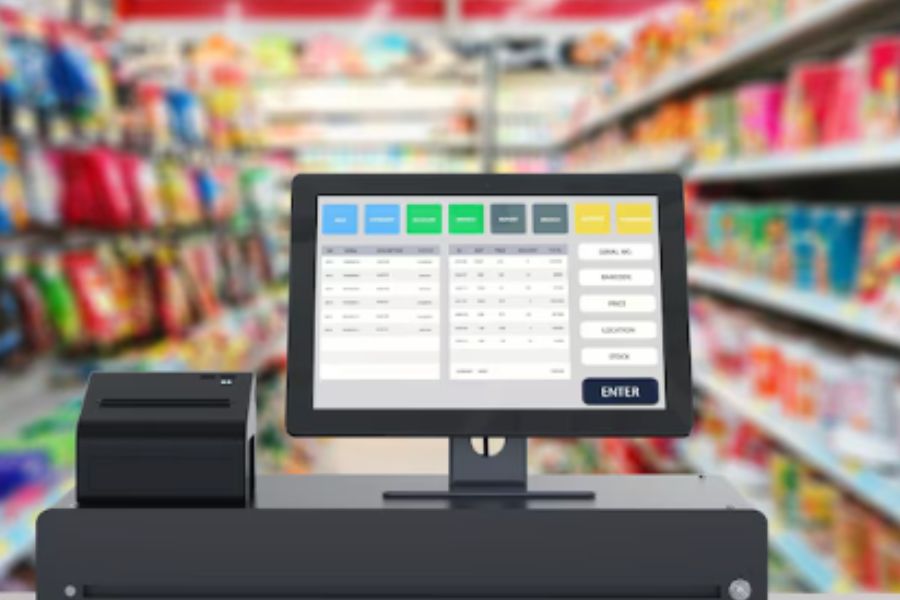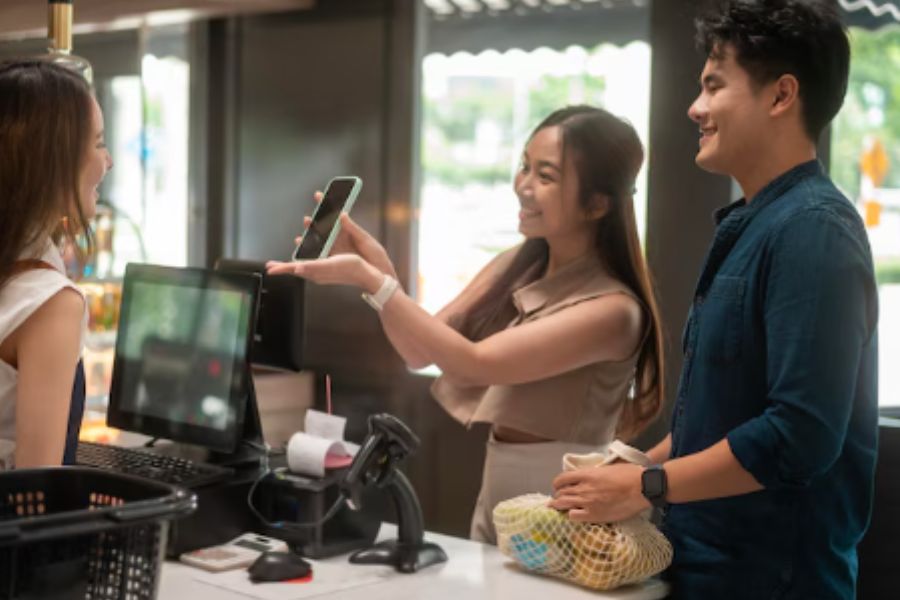As Indonesia’s home goods market grows, local retailers face new challenges. While opportunities multiply, managing inventory and sales across various channels is getting more complicated. Retailers risk losing profits and customer loyalty if they can’t keep up with these demands. How can retailers stay competitive? The answer may lie in choosing the best POS system in Indonesia to handle complex operations seamlessly.
Let’s explore why adopting a smart, reliable POS solution is helping Indonesian home goods businesses streamline operations and stay ahead.
Highlights:
- The home goods sector in Indonesia involves managing thousands of SKUs, irregular purchase cycles, and growing multichannel expectations.
- A home decor POS helps Indonesian retailers stay in control by syncing inventory in real time, tracking sales performance, and simplifying multi-store or online management.
Home Goods Sector Is Booming in Indonesia
Indonesia’s home goods market is taking off fast. According to Statista, the furniture market alone will hit around US$3.30 billion by 2025, growing at an annual rate of 2.24% through 2029. Not far behind, the home décor segment is also expanding, set to reach US$1.03 billion in 2025 with yearly growth of 3.46%.
Better yet, online sales are becoming the new norm. By 2029, eCommerce penetration in the furniture sector is expected to climb up to 15.04%. This digital shift means more consumers are buying sofas, tables, and décor online rather than visiting physical stores.
But what’s fueling this remarkable rise? A few things stand out. Indonesia’s expanding middle class, rapid urbanization, and younger consumers preferring online-first shopping experiences are driving strong market demand. Local retailers are feeling this boost, rapidly scaling operations to meet customer expectations.
Yet, despite rapid growth, managing inventory and sales across channels isn’t easy. Many retailers find real-time inventory tracking and multichannel sales management challenging, slowing them down and hurting profits.
Challenges in Managing Inventory and Sales for Home Goods Retailers
For home goods retailers, keeping inventory straight can get tricky quickly. With countless product variations, styles, and colors, plus a wide network of suppliers, things get complicated. In fact, 44% of U.S. retailers struggle with demand planning and forecasting, making it tough to stay ahead of consumer needs and avoid stock issues. Keeping everything organized is hard, especially when demand fluctuates wildly with seasonal trends and viral styles.
Offline-online coordination is another major hassle. Customers expect seamless experiences across all channels. They want to buy online and pick up in-store, or browse in-store and complete the purchase online later. Yet, most stores still struggle to integrate their physical and digital operations. In Indonesia specifically, 50% of enterprises cited incomplete customer data across platforms as a top challenge to executing effective omnichannel strategies.
On top of that, outdated manual workflows are dragging businesses down. Without reliable real-time data, retailers risk costly delays, overstocked items that won’t move, or missed sales opportunities from low stock at the wrong time.
Let’s look at how the best POS system in Indonesia helps retailers beat these inventory and sales headaches, driving continued success in this booming home goods market.
Essential POS Features for Indonesia’s Home Goods Retailers
To keep up with growing demands, home goods retailers need specific tools in their POS systems. Here are ten features that matter most:
1. Integrated Payment Processing
Today’s customers want flexible payment choices. A POS with integrated payments lets stores accept credit cards, mobile wallets, QR codes, and even installment payments effortlessly. It eliminates manual entry, reducing errors, and speeds up checkout, giving shoppers a smoother experience and cutting wait times.
2. Customizable Interface
Every store has different workflows. A custom POS interface allows retailers to adapt screens, menus, and functions to their specific needs. Staff can quickly access frequent tasks, from checking inventory status to processing returns, improving productivity and reducing training time.
3. Inventory Management
For home goods retailers managing thousands of products, powerful inventory management is non-negotiable. The best POS system in Indonesia provides real-time visibility of stock levels across multiple warehouses, automated reorder alerts, barcode scanning for accurate stocktaking, and simplified handling of product variations and bundles.
4. Customer Loyalty Programs
Rewarding loyal customers builds long-term relationships. The right POS makes managing loyalty programs easy by tracking customer purchases, points accumulation, and redeeming rewards automatically. Retailers can also personalize offers, discounts, and communication to boost repeat sales and engagement.
5. E-Commerce Integration
With online shopping booming, seamless e-commerce integration is essential. The best POS system in Indonesia synchronizes inventory, orders, and customer data between physical stores and online POS platforms like Shopify POS, Magento POS, or BigCommerce POS. It keeps stock accurate and provides a unified shopping experience across all channels.
6. Advanced Reporting and Analytics
Data-driven insights help retailers make smarter decisions. Advanced report & analytics gives clear, real-time views of sales performance, best-selling products, slow movers, customer buying patterns, and staff productivity. Retailers can adjust pricing, promotions, and stock strategies instantly, staying agile in changing market conditions.
7. Self-Checkout Options
Shoppers increasingly expect faster, contactless checkout. Self-checkout terminals, supported by self-service POS solutions, reduce queue times and labor costs while improving customer satisfaction. They’re particularly helpful during peak hours or busy seasons, freeing staff to assist shoppers with more complex needs.
8. Scalability
A POS system must grow with your business. Scalable solutions effortlessly handle adding new store locations, expanding product lines, increasing transaction volumes, and integrating new sales channels without slowing down. Retailers avoid tech bottlenecks as their business expands, maintaining smooth operations at every stage of growth.
9. Employee Management
Efficient staff management directly affects retail performance. POS systems offering employee management features simplify scheduling, time tracking, role-based access, and sales performance monitoring. It ensures employees stay productive, accountable, and aligned with overall business goals.
10. Compliance and Security
Security is critical for retailers managing customer data and payments. A robust POS ensures compliance with local regulations, data protection laws, and payment security standards (PCI DSS). Features like secure logins, encrypted transactions, and audit trails protect stores from data breaches, fraud, and costly compliance issues.
With these essential features, Indonesian home goods retailers can manage inventory smoothly, boost sales efficiency, and confidently scale their businesses.
Why the Best POS System in Indonesia Matters to Home Goods Retailers
Managing a home goods business comes with unique hurdles. Choosing the right POS system can simplify things dramatically.
1. Fewer Errors, More Time to Sell
Manual stock counts, pricing discrepancies, and missed sales can drain time and frustrate both staff and customers. A smart POS automates these tasks, keeping inventory synced and pricing accurate across outlets. That means your team spends less time fixing mistakes and more time helping shoppers.
2. Stronger Customer Relationships
It’s definitely a challenge to impress modern shoppers with just a smooth checkout. With built-in loyalty features, purchase tracking, and personalized promotions, modern POS systems help home goods stores create tailored experiences that keep customers coming back.
3. Smarter, Faster Decisions
Guesswork has no place in a competitive market. Real-time reporting gives store owners and managers up-to-the-minute insights into what’s selling, what’s sitting, and what needs immediate attention—all without waiting for weekly summaries or manual reports.
4. Ready to Scale When You Are
Growth, more often than not, brings complexity – new stores, more products, and multiple sales channels. The right POS system can handle it all, syncing inventory across locations and supporting both in-store and online sales without creating extra headaches.
ConnectPOS – Indonesia’s Best POS Solution for Home Goods Retailers
If you’re looking for the best POS system in Indonesia to run a home & furniture business, ConnectPOS checks all the boxes. It’s built specifically to handle large inventories, complex product variants, and multi-location sales while keeping everything synced in real time.
Trusted by over 12,000 retailers and 200 partners worldwide, ConnectPOS stands out due to flexibility, scalability, and specialized features made for modern Southeast Asian retailers.
- Powerful Inventory Management: Track stock instantly across multiple warehouses. Handle product bundles effortlessly, scan barcodes for faster sales, and receive automated alerts before running low on inventory.
- Seamless Omnichannel Experience: Unify online and offline stores seamlessly. Integration with popular platforms like Shopify, Magento, and BigCommerce simplifies sales. Click-and-collect, in-store returns, and unified customer profiles improve customer satisfaction.
- Customizable Checkout & Payments: Checkout quickly using mobile POS or self-service kiosks. Accept cash, credit/debit cards, e-wallets, or QR code payments. Easily print custom receipts, process split payments, and reward loyalty instantly.
- Advanced Business Insights: Access live reports on sales and profits, staff performance, and customer trends. Segment shoppers for targeted marketing and easily export data to ERP systems for better operational management.
- Designed for Home Goods Retail: Handle bulky furniture items, multiple delivery options, and large product catalogs easily. Flexible selling processes including quotes, deposits, and partial shipments integrate smoothly with existing CRM POS and accounting tools.
- Additional Highlights: Flexible mobile POS for sales on-the-go, smooth integration with third-party apps, multi-language support, automatic tax compliance, cloud/hybrid deployment for continuous operation, and reliable 24/7 customer support.
ConnectPOS supports home goods retailers in Indonesia to scale effortlessly, run operations more efficiently, and stay competitive as the market continues to grow.
FAQs: Best POS System in Indonesia
1. What’s the most important POS feature for home goods stores?
Effective inventory management. Real-time stock tracking across locations helps prevent lost sales from stockouts or wasted money on excess inventory.
2. How can a POS system help manage both online and offline sales?
It synchronizes sales channels, maintaining consistent pricing, inventory updates, and customer data. This gives shoppers a seamless experience no matter how they shop.
3. Does a POS help prevent overstocking or running out of items?
Yes. With automated inventory alerts and live updates, retailers know exactly when to reorder or adjust stock, cutting down waste and missed sales.
Final Thoughts
Indonesia’s booming home goods market is full of opportunities, but growth brings complexity. Thus, choosing the best POS system in Indonesia gives home goods businesses the control, visibility, and flexibility they need to navigate these challenges confidently and scale with ease.
ConnectPOS gives retailers powerful inventory management, detailed customer insights, seamless omnichannel capabilities, and reliable scalability. With ConnectPOS, Indonesian home goods stores don’t just keep up, they stay ahead.
Ready to elevate your business operations? Get in touch today and discover how ConnectPOS can simplify growth for your home goods store.



